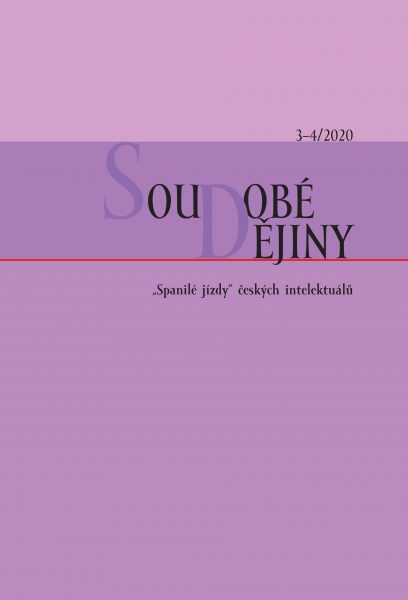Země nového štěstí?
The land of new happiness?
Czech searching in "murly waters" (1918–1945/1948)
Author(s): Petr HlaváčekSubject(s): History, History of ideas, Interwar Period (1920 - 1939), WW II and following years (1940 - 1949), Political Essay
Published by: AV ČR - Akademie věd České republiky - Ústav pro soudobé dějiny
Keywords: Czechoslovakia;political thinking;democracy;the East;the West;Communism;Fascism;Nazism
Summary/Abstract: The author’s essayistic text outlines contours of spiritual streams which were looking for alternatives to Czechoslovakia’s democratic, capitalist and republican system and its orientation to the West between the establishment of Czechoslovakia in 1918 and the advent of the Communist regime in 1948. He states that there were continuous voices which regarded Masaryk’s Czechoslovakia as a mere intermezzo and an unsatisfactory answer to the “Czech question”, although the unexpected restoration of the Czech independence in the form of a state shared with Slovaks enjoyed support of a clear majority of both nations and their elites. In this respect, the author speaks about “murky waters” or a “declination discourse”, which included voices demanding a breakup with the West and a revolutionary or authoritarian solution. Attractive models included Soviet Russia (for strong radical left-wingers), Fascist Italy, Catholic orthodoxy and, last but not least, Nazi Germany (for conservative or Fascist right--wingers). After the demise of the First Republic, the Protectorate of Bohemia and Moravia was a temporary victory for those who professed the German “New Europe”; after the liberation, the Third Republic brought closer a socialist perspective which turned into a Soviet protectorate after the Communist coup in 1948. The author presents opinions and texts of some intellectuals critical toward the liberal democratic system, among them prominent personalities including Communist journalist Julius Fučík (1903–1943), collaborationist journalist and Protectorate government minister Emanuel Moravec (1893–1945), theologist Josef Lukl Hromádka (1889–1969), politician Hubert Ripka (1895–1958), or President Edvard Beneš (1884–1948), the principal democratic guarantor of the post-war alliance with Stalin’s dictatorship.
Journal: Soudobé Dějiny
- Issue Year: XXVII/2020
- Issue No: 3-4
- Page Range: 525-537
- Page Count: 13
- Language: Czech

